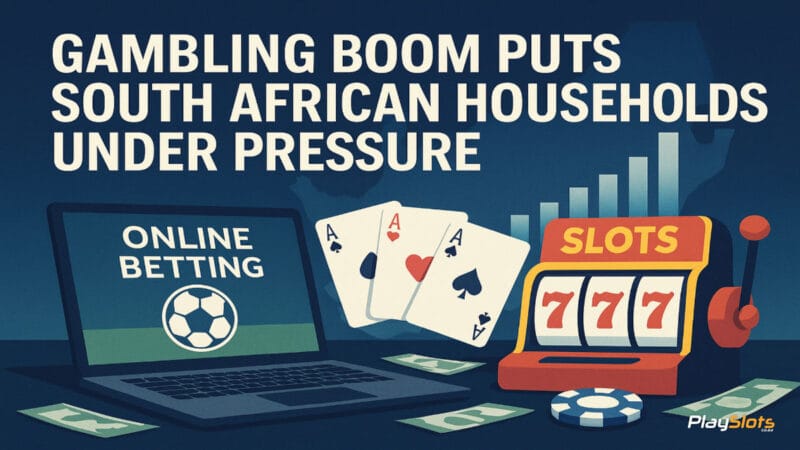Gambling Boom Puts South African Households Under Pressure

South Africa’s love affair with gambling is accelerating, and the numbers from the latest reports are eye-watering. Stats SA and the National Gambling Board both confirm what many already suspect: more of us are spending our money on betting slips and slot reels than on just about any other form of leisure.
Gambling jumps to a major household expense
Fresh figures show gross gambling revenue hit R59.3 billion in the 2023/24 financial year, up 25.7 % from the previous year. Bookmakers and online platforms are driving this growth, pulling in a staggering R152.6 billion last year compared to just R10.1 billion in 2018.
Gambling now eats up 1.6 % of household spending, making it the twelfth biggest item in the consumer price index basket, and the single largest slice of the “recreation and culture” category. In short, more than half of leisure spending now goes to gambling.
Who is gambling, and how often?
The Old Mutual Savings and Investment Monitor adds colour to the numbers. It found that 62% of gamblers play at least once a week, with nearly 40% doing so even more often. Men between 30 and 49 dominate the stats. Sports betting tops the list at 61 %, followed by lotteries (53%) and slot machines (52%).
More worrying, one in five gamblers say they’ve borrowed money, taken credit, or sold possessions to fund their play. For some, gambling isn’t just entertainment; it’s become a way to try to cover day-to-day expenses or climb out of debt.
Low-income households hit hardest
Analysts warn that the growth is not evenly spread. Around 41 % of low-income earners (R8 000 to R15 000 per month) report gambling to make ends meet. With youth unemployment hovering above 60 %, many young South Africans are being drawn into betting as a supposed “escape” from financial hardship. That makes the boom less a story of leisure and more one of economic pressure.
Calls for tighter regulation
The surge has sparked louder calls for action. Rise Mzansi MP Makashule Gana has warned that without proper funding for the South African Responsible Gambling Foundation, the country could “lose a generation” to gambling addiction. Problem gamblers under treatment have jumped eightfold, from just 375 in 2020/21 to nearly 3,000 in 2023/24.
Lawmakers want stricter oversight of advertising, especially since betting apps now flood TV, radio and social media. Vulnerable groups, such as school learners and social grant recipients, are being exposed to daily risks.
Court ruling underscores risks
The legal system has also had its say. This week, the Pietermaritzburg High Court ruled against 159 punters who pocketed R13 million from a system glitch on Hollywood Sportsbook’s Betgames “Instant Lucky 7” in December 2023. Judges found the players had effectively gambled for free and ordered the winnings to be repaid. It’s a sharp reminder that in gambling, if it looks too good to be true, it probably is.
A growing cultural conversation
Even local entertainment is picking up on the trend. The new film Bet I Love You, released on Showmax this week, tells the story of a compulsive gambler who loses his sister’s lobola money and spirals into crisis. It’s a fictional take on what is fast becoming a very real issue: gambling’s grip on South African households.



